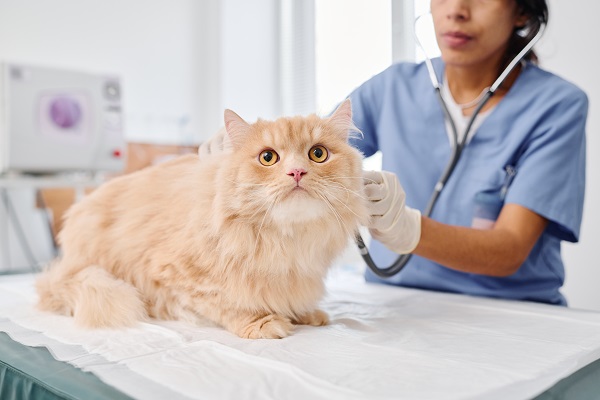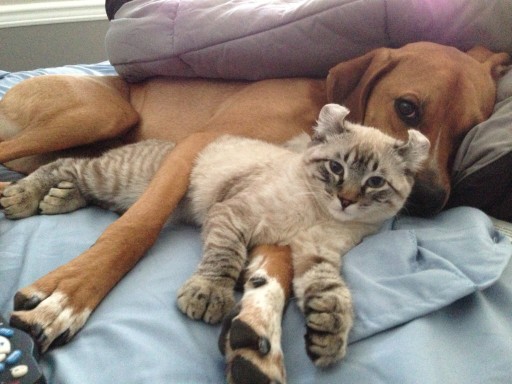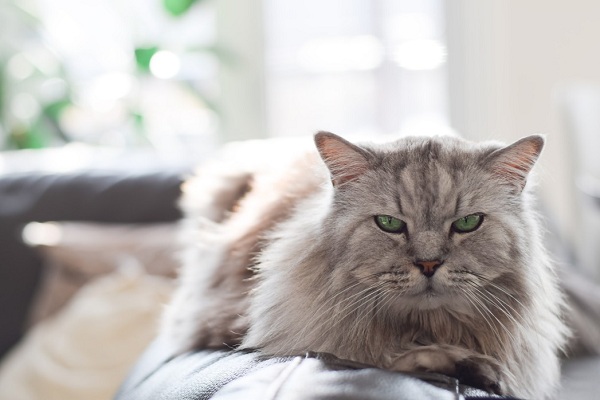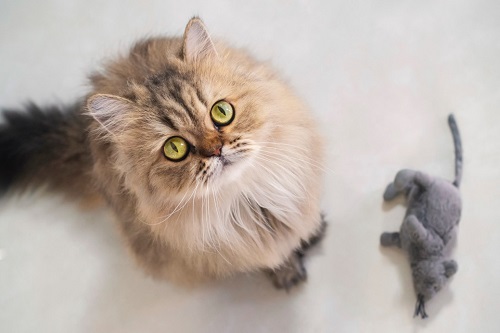Although cats can take good care of themselves, their owners should provide good care for their pets to help them stay healthy and happy.
It starts with choosing the right cat food in consultation with your veterinarian to ensure that the cat receives proper nutrition that helps it stay healthy. Moreover, providing fresh water every day is essential. It entails refilling the water bowls regularly.
If you serve baby food to your cat in case the feline refuses average food for some reason, then choose a suitable baby food that does not contain garlic or onion powder which is poisonous for cats. Be careful in providing treats to your cat by limiting them to 5-10% of the diet.
However, there will be occasions when your cat might fall sick because of common health issues that afflict the felines and are often unavoidable.
Knowing about the common health problems of cats should help to respond correctly according to the situation by identifying the signs of sickness.
Common Cat Diseases & Health Problems
Vomiting
Vomiting is the most common problem in cats that can happen for several reasons. Your cat might have eaten something toxic that causes vomiting. Other reasons could be that your cat has diabetes, urinary tract disease, or some other infection, including hairballs.
Regardless of the cause, the symptoms are similar, like abdominal heaviness, drooling, or flow of excess saliva from the mouth.
Vomiting drains bodily fluids and leaves your cat dehydrated if it persists for a long time. Act fast and call your veterinarian, who might advise collecting a vomit sample for testing and diagnosing the problem to start treatment.
If the cat has chronic vomiting problems or persistent hairballs that do not respond to standard medications, the vet will advise some particular medicines such as Cisapride, a prokinetic drug.
Fleas
Fleas are common among cats and affect them externally. The cat flea is one of the 2,500 flea species, and if you observe fleas affecting your cat, you can start the treatment yourself. Fleas are tiny parasites that thrive on the cat’s blood and hide within the fur. With the ability to crawl and jump, the tiny insects are hard to arrest as it scurries away from sight when you approach to get hold of it.
Frequent body scratching by cats as a response to itching is one of the most common symptoms of fleas. But, it would be best to detect the parasite’s existence by combing the coat with a flea comb or using your fingers before starting treatment.
The other symptoms include hair loss, tiny black dots on the skin or flea dirt, reddish skin, and frequent licking of various bodily places. Persistent flea problems can cause anemia in your cat, and your vet can suggest a remedy.
Feline Lower Urinary Tract Disease (FLUTD)
Cats of both genders can contract Feline Lower Urinary Tract Diseases (FLUTD), especially if your cat is on dry food, unfit, or overweight. Living with other cats, stress, and sudden changes can increase the risk of the disease.
Consult your vet if your cat has FULTD for an exact diagnosis to ascertain the type of FULTD affecting your cat and start proper treatment.
From vomiting to drinking more waste, problems with urine are some common symptoms of FULTD. The cat might be straining to urinate or have blood passing in urine, crying while urinating and even might urinate at unusual places. Licking around the urinary area, loss of appetite, and dehydration also point toward FULTD.
Soon upon detecting the problem, take your cat to the vet as the matter is serious and needs urgent treatment.
Diarrhea
Diarrhea is one of the most common health issues faced nu cats, and the causes can be many. Allergies, spoiled or toxic food, infection, intestinal parasites, liver disease, and even cancer can cause diarrhea. The symptoms of diarrhea in cats are similar to what we experience – loose, watery, and liquid stool.
The time taken to cure the condition depends on the cause of the disease, and it can vary from a few days to weeks and months in more severe cases. For example, cats with cancer might have frequent diarrhea that takes longer to cure and recurs.
Tapeworms
Infestation of tapeworms in cats is quite common. Tapeworms are found in the small intestine of cats, and sometimes the parasite can be as long as 2 feet. The body of tapeworms has many segments, and when expelled, the body keeps breaking apart.
The part that becomes visible when the cat excretes is a portion of the tapeworm’s body. The symptoms of cats with tapeworms include weight loss and vomiting.
To know if your cat has a tapeworm infestation, check the feces, bedding, and the area around the anus. If you see tiny white grain-like structures that might or might not be moving, be sure that your cat has tapeworms. Topical medication, oral drugs, and injectibles are recommended for treating tapeworms.
Read Also: Tips for Ensuring a Safe and Comfortable Travel for Your Cat
Eye problems
Eye problems in cats can happen due to conjunctivitis, cataracts, corneal ulcer, viruses, trauma, glaucoma, retinal disease, and inflammation.
If you observe tear-stained fur around the eyes, watery eyes, white or red eyelids linings, cloudiness, squinting, gunk in the corner of the eyes, and a visible third eyelid, and your cat is pawing at the eye, yes, then these are signs of eye problems.
For eye problems, please consult your vet because they only can treat the condition after a proper diagnosis.
Read Also: Tips For Moving In With Dogs And Cats
 DogExpress
DogExpress





















 in Chandigarh, India.
in Chandigarh, India. 

